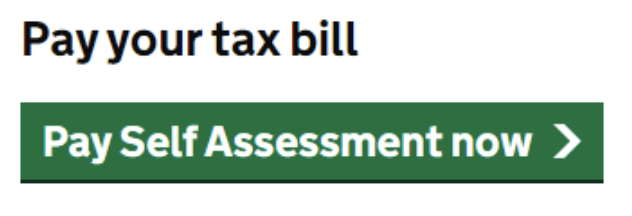Navigating the world of taxes can be a complex and sometimes daunting task, especially when it comes to understanding the various requirements and deadlines involved. One aspect that often causes confusion is the need for payments on account.
If you're self-employed, run a business, or have other income not taxed at source, you've likely encountered this term. But why do people have to make payments on account for tax?
Related Article: Simplifying Payroll: Best Practices for Small Business Owners
Related Article: The Importance of Cash Flow Management: Tips for Small Businesses
What are payments on account?
Payments on account are tax payments individuals make in advance of their tax and class 4 national insurance bills mainly if you are self-employed.
Why do you have to make payments on account?
When a person is employed their tax and national insurance is deducted from their gross pay monthly or weekly depending on when they are paid. Self employed people would not normally have tax and national insurance deducted at source weekly or monthly. This is why we have payments on account.
How are payments on account calculated?
When an individuals tax calculation is done, if there is more than £1000 tax & national insurance owed to HMRC, this will initiate the requirement for a payment on account for the following tax year also.
Example:
A tax calculation is completed and the total tax and national insurance outstanding is £1500. As the amount owing is more than £1000 the individual will also have to pay payments on account. The payments on account are 2 payments, each being half of the outstanding tax for the year just completed so
For tax year 5/4/2024 £1500 tax and national insurance is owed
The individual will also have to pay £750 twice in advance of 5/4/2025
Then imagine you get to 5/4/2025 and the individuals actual tax and national insurance bill is £1800. The calculation would be:
Tax and national insurance owed for 5/4/2025 £1800
First payment on account made for 5/4/2025 | -£750 | |
|---|---|---|
Second payment on account made for 5/4/2025 | -£750 | |
Balancing payment due for 5/4/2025 | £300 |
Then payments on account for 5/4/2026 are added
First payment on account for 5/4/2026 | £900 (being half of £1800) | |
|---|---|---|
Second payment on account for 5/4/2026 | £900 (being half of £1800) | |
What dates are payments on account due?
Payments on account are made
31 January
31 July
Using the above example again:
Lets assume the individuals very first year of self-employed income was 5/4/2024
The tax and national insurance due was £1500
By 31/1/2025
The individual would pay | £1500 outstanding for 5/4/2024 | |
|---|---|---|
First payment on account for 5/4/2025 | £750.00 | |
Total to pay by 31/1/2025 | £2250.00 |
By 31/7/2025
The second payment on account for 5/4/2025 is paid | £750 | |
|---|---|---|
By 31/1/2026
The 5/4/2025 tax return is then completed and submitted by 31/1/2026
Tax and national insurance owed for 5/4/2025 | £1800 | |
|---|---|---|
First payment on account made for 5/4/2025 | -£750 (paid 31/1/2025) | |
Second payment on account made for 5/4/2025 | -£750 (paid 31/7/2025) | |
Balancing payment due for 5/4/2025 | £300 | |
+ First payment on account for 5/4/2026 | £900 | |
By 31/1/2026 amount to pay would be payment on account for 5/4/2026 | £1200 (£300 balance for 5/4/2025 & £900 |
By 31/7/2026
The second payment on account for 5/4/2026 is paid | £900 | |
|---|---|---|
How are payments on account paid?
You can use a debit card to make tax and national insurance payments:
Click on the link https://www.gov.uk/pay-self-assessment-tax-bill
Scroll down and click on
When it asks “do you want to sign in” – you sign in to your HMRC online account or you can select no and make payment without signing in to your online HMRC account. Press continue
It will then ask for the 10-digit ref no: This is your unique tax reference number
Then follow the on-screen instructions to make the payment.
If you need help and guidance for your bookkeeping/accounts/tax/vat/payroll reach out to us and we will be happy to talk you through how we can help you.


